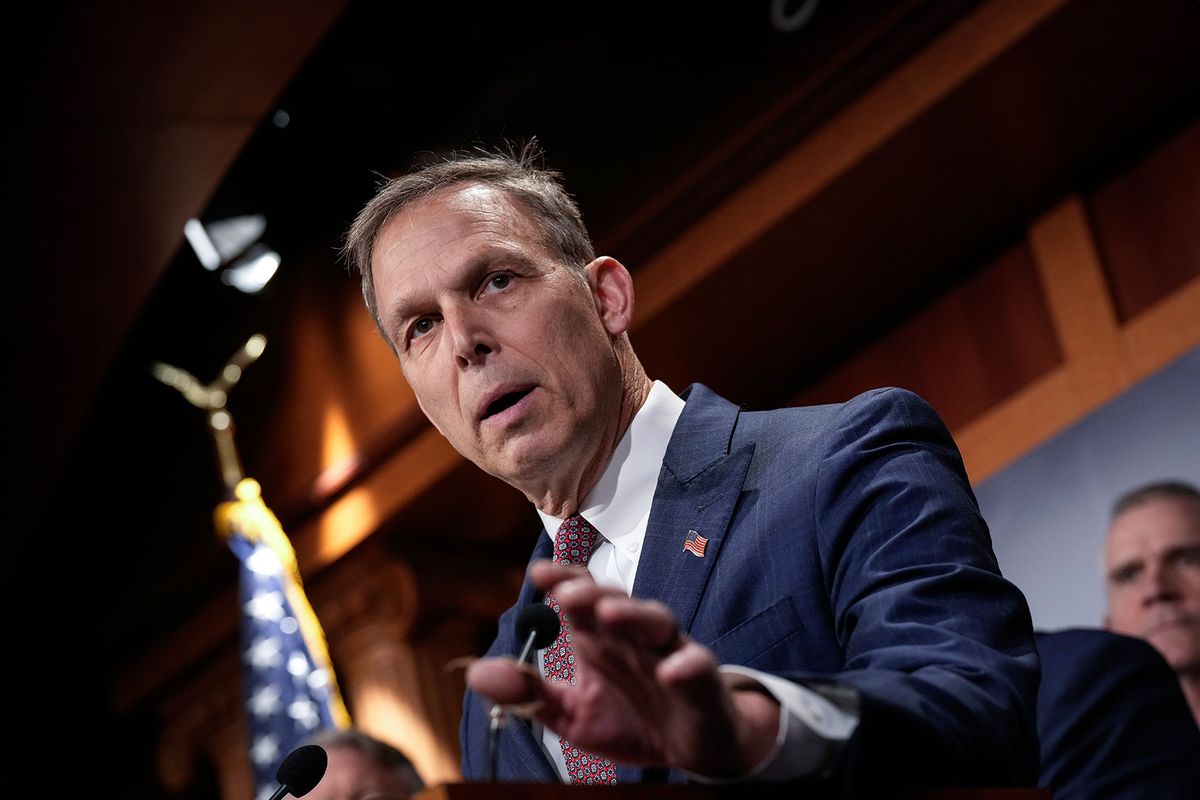Rep. Scott Perry, R-Pa., must disclose to federal prosecutors more than 1,600 text messages, emails and other communications related to the investigation into Donald Trump and his allies’ attempts to overturn the 2020 election, a federal judge ruled Tuesday. Chief U.S. District Judge James Boasberg found that the majority of the messages between Perry and other members of Congress, members of the Trump administration and allies outside of the government could not be concealed from prosecutors by the representative’s constitutional protections as a member of Congress, Politico reports.
Why arent they asking the phone company and why havent they hacked his phone like they do to any other defendant?
I think it’s not a question of if they can get them. It’s a question of if they can use them.
They can legally seize them with a warrant. But that usually only happens if the target might attempt to destroy evidence or otherwise not cooperate.
They can also legally compel the target during execution of said warrant to provide their biometrics (but not their passcode) to unlock the devices.
Keep in mind, the biometrics also applies to traffic stops. If a cop believes you were texting and driving or something… they can use your face or whatever to get that evidence.
Set a passcode and remember to emergency lock any time you want more than biometrics locking your phone. Or don’t use biometrics because they’re easy to defeat anyways, but to each their own.
Here’s what one state’s texting law says about a stop for texting and driving: A law enforcement officer who stops a motor vehicle for a violation of paragraph (a) must inform the motor vehicle operator of his or her right to decline a search of his or her wireless communications device and may not: 1. Access the wireless communications device without a warrant. 2. Confiscate the wireless communications device while awaiting issuance of a warrant to access such device. 3. Obtain consent from the motor vehicle operator to search his or her wireless communications device through coercion or other improper method. Consent to search a motor vehicle operator’s wireless communications device must be voluntary and unequivocal.
That’s one out of 49. Do others have that? Sure. Some. Others don’t.
I wouldn’t trust it worth a fart, though, and trying to explain that law to cops is more likely to get you charged with contempt of cop.
I too would not trust it worth one fart. That said, seems reasonable you and I should drink some (many) beers, eat some (many) nachos and wings, and try to definitively determine the worth of a fart–so we’re all on the same page when we use the fart as a measurement of worth. So, call me maybe?
[Scott] must disclose
That implies otherwise, no? Like if they alread had it wouldn’t they just provide the foundation and then submit them to the Court as exhibits?
Why do they need Scott to do anything?
I assume that they need them to be handed over through a legal process in order to be admissible in court.
It is generally not allowed to use illegally obtained evidence in court.
Yes, I know that it does happen, and people who can not afford effective legal representation get convinced
If he had illegal materials would they still “wait” and do him the courtesy of allowing him to retain possesion of his devices?
It could also be, they want to see what he tries to hide.
I’m pretty sure that they already have all the messages. In the linked article it says:
Boasberg’s order backs a decision made almost a year ago by U.S. District Judge Beryl Howell, who found that Perry was required to share with prosecutors 2,055 communications he had attempted to hide, with only about 200 actually shielded.
There were originally 2,055 communications that he tried to hide, and the court has now said that 1,659 of them are not protected by the Speech and Debate clause. That means that the court must have reviewed all those messages in order to come to that conclusion.
The court is essentially telling him to consent to the messages being made available to investigators or to appeal the ruling, which he probably will. Eventually, assuming the ruling isn’t overturned, the court will allow the Justice Department to use the messages in their investigation without his consent since he has no grounds to refuse.
Article I Section 6 of the Constitution
For the lazy:
The Senators and Representatives shall receive a Compensation for their Services, to be ascertained by Law, and paid out of the Treasury of the United States. They shall in all Cases, except Treason, Felony and Breach of the Peace, be privileged from Arrest during their Attendance at the Session of their respective Houses, and in going to and returning from the same; and for any Speech or Debate in either House, they shall not be questioned in any other Place.
Honest question, how does that apply here?
and for any Speech or Debate in either House, they shall not be questioned in any other Place.
Is typically seen as a broad prohibition on any investigation or action against a legislator based on their speech. So, if a Representative gives a blistering speech against the Governor of Virginia on the House floor, that Governor can’t use that speech to have the representative charged with some sort of crime on the way to Dulles Airport in Virginia.
It’s applies to any communication, so even text messages count, as long as they in any way involve the business of the House. But in this case, it was found that most of the messages were not covered under this clause.
“Boasberg found that the majority of the messages between Perry and other members of Congress, members of the Trump administration and allies outside of the government could not be concealed from prosecutors”
Sooo… sounds like a whole bunch of volunteers for 14th Amendment exclusion…
Excellent.
Assuming the order is followed.
If he doesn’t, they’ll get a warrant to have them delivered by the phone company, et al., and then they’ll prosecute him for noncompliance. Either way, this isn’t about if the evidence can be obtained, but more a statement of its upcoming use in the case.







